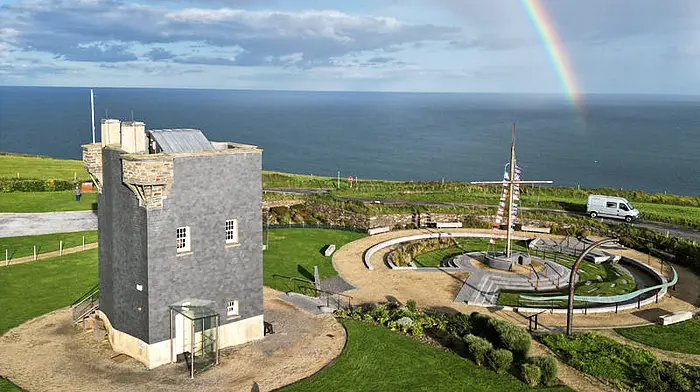It is shocking to note in the report, entitled ‘Rehabilitation and Recovery in Irish Mental Health Services,' that in the Cork-Kerry region, there are only two rehabilitation and recovery teams.
ALL the ballyhoo about Budget 2020 and Brexit last week saw World Mental Health Day on October 10th slipping almost unnoticed below the radar here. However, worse-off people may end up, financially, as a result of the Budget and Brexit, if they haven’t got their mental health in check, it is a lot more serious and yet – according to a report by the Mental Health Commission (MHC) – the short-sightedness of not providing adequate mental health rehabilitation services has led to long-term neglect of people with serious and enduring mental illnesses.
It is shocking to note in the report, entitled ‘Rehabilitation and Recovery in Irish Mental Health Services,’ compiled by the Inspector of Mental Health Services, Dr Susan Finnerty, that in the Cork-Kerry region, there are only two rehabilitation and recovery teams, while under recommendations there should be seven. That’s just two ‘poorly-staffed rehabilitation teams for a population of over 680,000 people,’ the MHC emphasises.
The government’s 2006 mental health policy, ‘A Vision for Change,’ included the development of specialist rehabilitation and recovery mental health services, but Dr Finnerty’s report found that there has been minimum improvement in the number of rehabilitation teams in Ireland over the last decade: ‘There are 23 rehabilitation teams nationally; 48% of what is required under current mental health policy. Of those teams, none are staffed to recommended levels.’
Pointing to ‘the impending refresh of “A Vision for Change”,’ combined with the HSE’s 2020 National Service Plan and Sláintecare, Minister of State for Mental Health and Older People, Jim Daly, TD, in welcoming the announcement of a €1bn allocation to HSE Mental Health Services in Budget 2020, said ‘this represents this government’s commitment to mental health as a priority area and re-affirms our continued support for service development and improvement in mental health services within the HSE.’
However, the Sinn Fein mental health spokesperson, Pat Buckley, TD, condemned the government for ‘once more attempting to mislead the Dáil on Budget day in regards to their mental health allocation.’ He alleged that the announcement of an additional €39m to mental health services was misleading because the government had withheld €25m announced in last year’s Budget, so that, ‘in reality, only €14m of new money is being provided.’
Mr Buckley went further by stating that, ‘every year since 2016, old money is being re-announced as new money – all for the purpose of a good press release and to pretend the government is serious about mental health.’ He added that this ‘insults the patients, the families, the campaigners by trying to fool them.’
Coming from a non-political perspective, the MHC’s report on the ‘wholly inadequate rehabilitation and recovery service’ echoes this and speaks of the anger and frustration it is causing, not just for patients but for the mental health service as a whole. Dr Finnerty writes about the ongoing ‘revolving door’ of admissions: ‘The long-term neglect of people with severe and enduring mental illness has negative outcomes for the service user and their families. Because of the unmet need for rehabilitation, many people with enduring mental illness have repeated admissions to inpatient psychiatric units, are then discharged, to be re-admitted when things break down again.’
The MSC report pulls no punches in pointing out that ‘the lack of provision of mental health rehabilitation is a human rights issue.’ The Commission has written to the HSE urging it to come up with an action plan to urgently address the concerns raised in its report.
It is said that health is wealth and mental health has to be the most valuable component, but it obviously has not been valued enough by successive governments and people are suffering as a result of ongoing underfunding of the mental health services.








